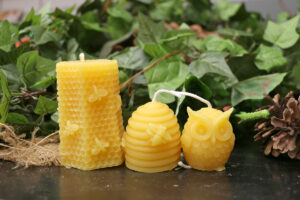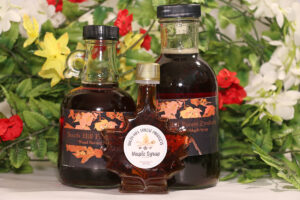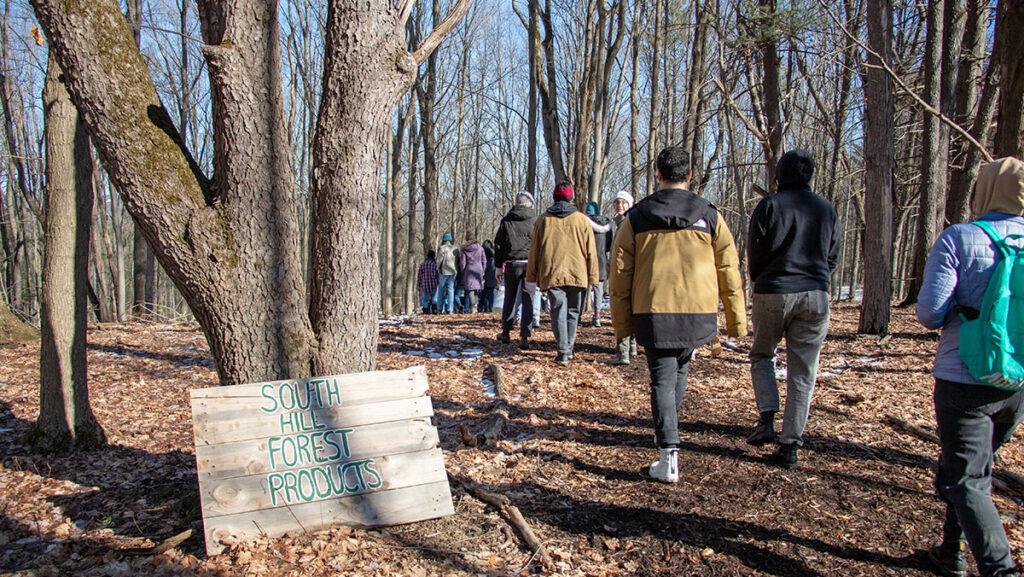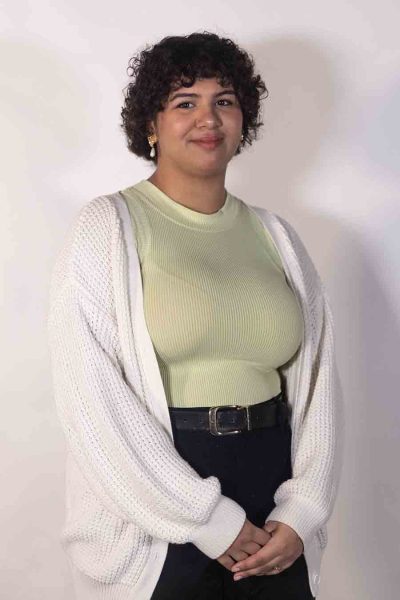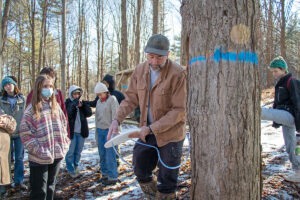
Nearing the end of the academic year, students and faculty have the opportunity to showcase the cultivation of months of hard work. For some, this is an academic paper or presentation. For the students in the Non-Timber Forest Products class, this is South Hill Forest Products.
South Hill Forest Products is an initiative where students from the college work alongside professors in the Department of Environmental Studies and Science to harvest maple syrup, honey and other forest products in an effort to maintain and sustain the Natural Lands. It is the brainchild of Jason Hamilton, professor in the Department of Environmental Studies and Science, who had the idea to use the Natural Lands’ resources as a way to finance and educate students in the Non-Timber Forest Products class starting in 2010.
The students that work with the South Hill Forest Products company will be selling their products from 10 a.m.–2 p.m. April 22 during the South Hill Forest Products’ open house on Rich Rd. on the Natural Lands trail. Among these, maple syrup that students tapped from the local trees, as well as candles made with beeswax that they harvested from the South Hill apiary and wood carvings will all be up for sale. This event will have a pancake breakfast and homemade syrup and will be open to the public — highlighting the culmination of student’s work in the Natural Lands.
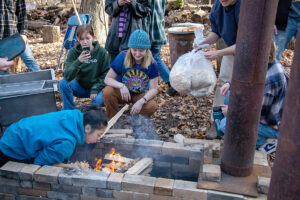
The Natural Lands comprise more than 500 acres of protected conservated land that exists on and around the college’s campus for anyone who desires to use it.
Senior Cali Trainor was one of the students who helped work on South Hill Forest Products during Spring 2023. During the class, Trainor said she took on several roles, including working on the South Hill Forest Products’ website, leading the merchandise team and making wood carvings of animals to be sold online and at the open house.
“It’s really unique,” Trainor said. “I’ve never heard of any other class at any other institution like it. Because we’re learning about maple trees, we’re outside chopping wood with axes and we’re also learning about what it means to run a small business.”
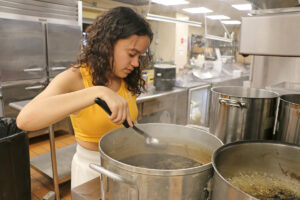
Senior Gabe Levitan worked with South Hill Forest Products Spring 2022 as well as the Student Land Stewardship Program, which maintains the Natural Lands, and said he is surprised at how many people do not know about all that the Natural Lands has to offer.
“You don’t need to go off campus to do all of the things that you’re thinking about doing,” Levitan said. “There’s a lot of cool spots on campus that people just don’t go to because they don’t know about them. Like South Hill Forest Products or the Non-Timber class is open to everyone, not just Environmental Studies majors. I had a bunch of Park students in my class, some music majors, and really just people who wanted to get outside and learn what it was like to work with your hands and make a business out of it.”
Through the open house, Levitan said the students and professors behind South Hill Forest Products are able to highlight what sustainability and connecting with nature means to them in a special way.
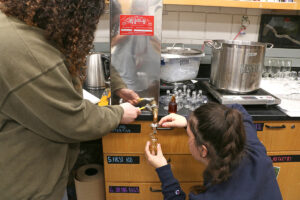
“My experience was one where it really showed me the importance of being not only outside but connecting with nature and making sure that the community around you connects with nature,” Levitan said. “There’s the pancake breakfasts that we make each year, that’s the open house that I was talking about. We put on a pancake breakfast at the place [where] we boil syrup. It’s a huge thing for the community, everybody around knows about it and comes to it. Usually, we get 500 or 600 people that come out. It was a lot of work. There were maple syrup teams, hickory syrup teams, wax scrubbing teams [and] honey collecting teams. It is all meant to set up for the open house.”
After attending the South Hill Forest Products open house in Spring 2022, senior Taylor Callis said she knew she had to get involved. For Spring 2023, Callis said she was involved with co-leading marketing and sales for South Hill Forest Products, where she was able to take the things she learned from classes in the Department of Strategic Communications and apply them toward developing the business.
“It is definitely a great deal of work, working with other people to run the business efficiently while balancing other responsibilities,” Callis said. “That being said, that is what makes it so much more rewarding. I know that my many late nights of work in the lab, emails back and forth to campus and off-campus partners and brainstorming sessions with my classmates are all going toward supporting this class for future members.”
In many cases, Callis said she believes the lessons she has learned in the Non-Timber Forest Products class, as well as the work done for South Hill Forest Products is unlike anything else.
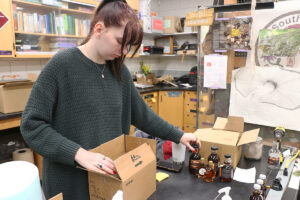
“We get a lot of cool opportunities that may not appear in other classes,” Callis said. “Where else gives you the opportunity to make bark baskets and travel to a farm to learn about shiitake mushroom production? Although it’s a lot [of] logistical planning, I love being able to get hands-on experience while frolicking through the forest.”
Despite not having much of a background in environmental studies or sustainability prior to this semester, Trainor said the experience of working on South Hill Forest Products is invaluable.
“I’m really excited for people to see where we do our work,” Trainor said. “I think it’s a really unique thing to be able to sell the maple syrup you made surrounded by the trees that it came from. … It can be a really educational experience as well. … So it’s not just ‘come buy our product.’ We really want to be engaging with the community and we want people to come see our little sustainable small business.”
